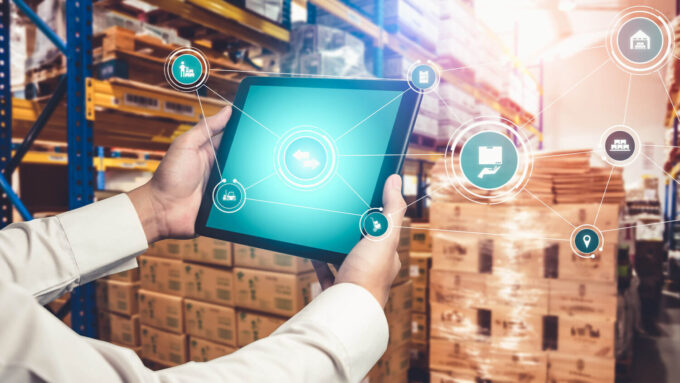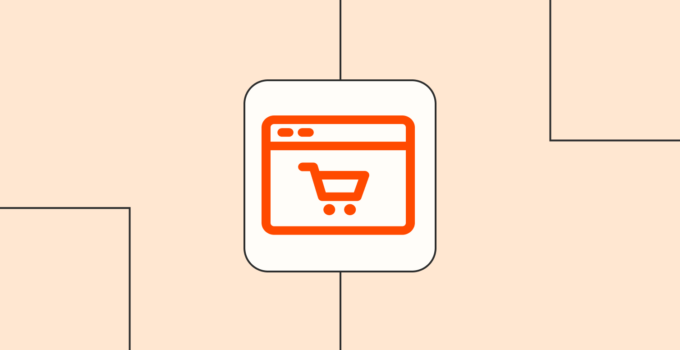Building your eCommerce business is far easier said than done. Currently, there are close to 30 million businesses like this all over the world, which means that your competition is huge, and you need to work smarter if you want to be the one that catches your clients’ eye.
In this article, we are going to tell you more about automation, and we will help you learn how this process can streamline your brand. Keep on reading if you want to learn some tips and tricks that might be the difference between your company skyrocketing and it failing.
How Can You Leverage Information to Improve Customer Experience?
One of the standout features of e-business is the sheer amount of data at our fingertips. Every click, every abandoned cart, every purchase tells a story. But sifting through this mountain of data manually is not just tedious; it’s almost impossible. This is where automation steps in.
Advanced algorithms can quickly analyze data to understand individual customer preferences, behaviors, and purchase histories. By leveraging this understanding, businesses can tailor shopping experiences to individual users, providing product recommendations or even adjusting pricing strategies in real time to maximize sales and improve customer satisfaction.
This not only enhances the shopping experience for customers but also boosts conversion rates and sales for businesses.
Can You Do Your Inventory Management Properly?

Source: corporatevision-news.com
For any e-tail business, managing inventory efficiently is crucial. Stocking too much can lead to unsold products and financial losses while stocking too little can result in missed sales opportunities and disgruntled customers. Mechanization plays a pivotal role in fine-tuning this balance.
Through automated systems, businesses can track product levels in real-time, receiving alerts when stock is low or when there’s a sudden spike in demand for a particular product. This allows businesses to make timely and informed decisions about restocking, ensuring that they never miss out on a sale due to an out-of-stock product.
How Can Digital Technologies Help You With Your Marketing Strategy?
The realm of marketing within e-business is vast, often requiring a juggler’s precision to keep numerous balls in the air. From email campaigns to retargeting ads, ensuring that the right message reaches the right person at the right time can be a daunting task. Robotization tools can help alleviate this pressure.
Advanced platforms now offer the ability to segment audiences based on various criteria, be it their purchasing history, browsing behavior, or demographic information. Once segmented, motorization can trigger specific marketing campaigns tailored to each group, ensuring relevancy.
How Can It Benefit You When It Comes to Customer Support?

Source: blog.megaventory.com
Customer support is often a significant pain point for many e-tail businesses. The sheer volume of queries, complaints, and feedback can be overwhelming. However, mechanization offers a lifeline. By incorporating chatbots and AI-driven support systems, businesses can handle a large number of customer interactions seamlessly.
These systems can quickly provide answers to frequently asked questions, process returns, or even guide customers through troubleshooting steps. While they’ll never replace the human touch entirely, they drastically reduce the workload on human agents, allowing them to focus on more complex issues that require a personal touch.
Can These Systems Make Your Brand More Secure?
With the increasing volume of transactions and the sensitive nature of data e-tail businesses handle, security has become paramount. Fortunately, robotization can also be a frontline defense against potential breaches. Automated security protocols continuously monitor the system for any suspicious activities, instantly flagging them for review.
This real-time monitoring can prevent unauthorized access, safeguarding both the business and its clientele. Furthermore, by automating the backup processes, businesses ensure data integrity and availability, even if confronted with unexpected challenges like server crashes.
How Can Automation Improve Order Processing?

Source: shipbob.com
The moment a customer places an order, a well-coordinated sequence of events must unfold. The order must be processed, the item picked from the warehouse, packaged, and finally shipped. Mechanization simplifies this entire process. With integrated systems, as soon as an order is placed, it’s automatically relayed to the warehouse.
The system can then determine the best route for picking, and packaging the product efficiently, and schedule it for dispatch. This not only speeds up the entire order fulfillment process but also minimizes errors, ensuring that customers receive their products promptly and accurately.
How Can You Build Your Business Strategy and Grow Your Brand?
While motorization streamlines operational tasks, the incorporation of Artificial Intelligence can provide businesses with deep, actionable insights. AI can sift through vast datasets, identify patterns, and provide forecasts, allowing businesses to anticipate market trends.
For instance, by analyzing sales data, AI can predict which products are likely to become best-sellers in the upcoming season, guiding inventory decisions. Similarly, by studying customer feedback, AI can highlight areas of improvement, whether it’s in product design, user interface, or customer service, driving continuous improvement.
When you create a synergy between traditional knowledge, digital tools, robotization, and artificial intelligence, you can easily reach for the stars and place your organization on the list of most successful brands.
What Are the Benefits That Transcend Your Brand?
An often-overlooked advantage of mechanization in e-business is its potential to promote eco-friendly operations. By optimizing inventory levels, businesses can reduce waste from unsold products. Automated logistics can determine the most fuel-efficient delivery routes, reducing a company’s carbon footprint. Moreover, by using data-driven insights to refine packaging processes, businesses can minimize material use, further promoting sustainability.
As the world of e-business continues its rapid expansion, businesses need every tool at their disposal to stay ahead of the competition. Robotization, with its myriad benefits, is no longer a luxury but a necessity.
By harnessing the power of automated systems, modern businesses can streamline operations, enhance customer experiences, and even contribute to a more sustainable and eco-friendly business model. In this dynamic landscape, mechanization isn’t just about working faster; it’s about working smarter, ensuring sustainable growth and success in the digital marketplace.







